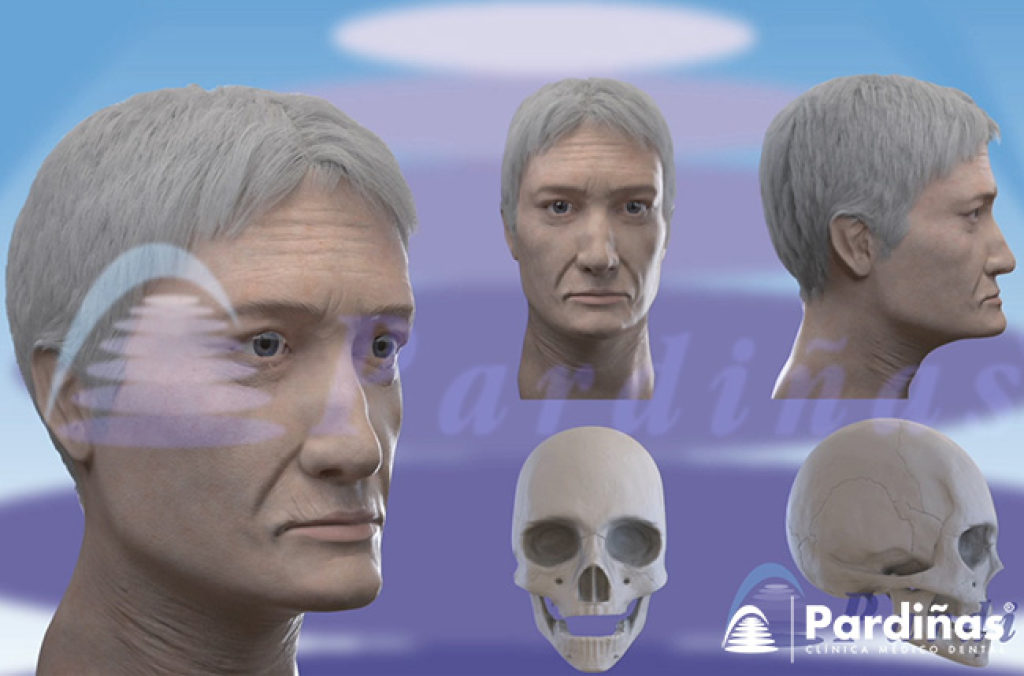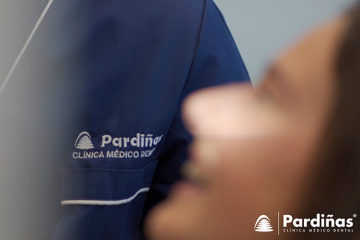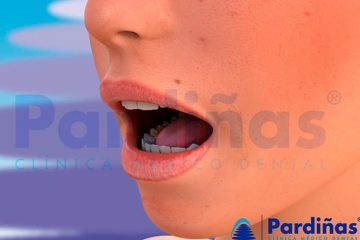There are many studies that point out the close relationship that dental diseases have with health problems in the rest of the body. Heart attacks, diabetes, arthritis, infections... are some of the problems of oral origin that can spread to other parts of the body.
-
1) What common diseases can originate in the mouth?
-
2) Oral diseases that can have consequences on general health
-
2A) Periodontal disease and its multiple consequences beyond the mouth
- 2A.a) Heart diseases
- 2A.b) Periodontitis and its relationship with diabetes
- 2A.c) Complications in pregnancy
- 2A.d) Respiratory diseases related to pyorrhea
- 2A.e) Rheumatic diseases
- 2A.f) Alzheimer's and dementia could be connected to periodontitis
- 2A.g) Gastrointestinal disorders
- 2A.h) Pyorrhea and its connection with kidney diseases
- 2A.i) Complications in surgeries
- 2A.j) Bone problems related to periodontal disease
- 2A.k) Skin conditions
- 2A.l) Endocrine problems
- 2A.m) Liver problems
- 2A.n) Autoimmune diseases
- 2A.o) Cancer and gum disease
- 2A.p) Peripheral vascular problems
- 2B) Cavities can also harm general health
- 2C) Oral infections can spread to other parts
- 2D) Oral cancer and metastases
- 2E) Malocclusion, bruxism and TMD can cause muscle problems
- 2F) Sleep apnea, a potentially serious problem
- 2G) The mouth can also be a source of infection
-
2A) Periodontal disease and its multiple consequences beyond the mouth
-
3) How are oral diseases treated?
1) What common diseases can originate in the mouth?
The pathogens and bacteria found in the mouth, as well as the inflammatory mediators generated, can not only cause gum disease, tooth loss, cavities or bad breath, but are also related to other types of diseases such as arthritis, diabetes , heart attacks and colon cancer. Many medical problems have their diagnosis, solution and prevention in the mouth.

2) Oral diseases that can have consequences on general health
Any inflammation and infection in the mouth can affect the rest of the body, since bacteria and inflammatory mediators can travel through the bloodstream to any part of the body, and be one of the contributing factors to heart problems, rheumatoid arthritis and heart attacks, among others. In addition, other common oral problems such as sleep apnea or bruxism can also cause extraoral problems.

2A) Periodontal disease and its multiple consequences beyond the mouth
The pathogens that cause periodontitis destroy the tissues surrounding the tooth, but they can also spread to the rest of the body through blood flow.
2A.a) Heart diseases
Gum disease has been linked to an increased risk of heart disease. Bacteria from the gums can enter the bloodstream and stick to the arteries, contributing to plaque formation and atherosclerosis. This can lead to an increased risk of heart attack or stroke.

2A.b) Periodontitis and its relationship with diabetes
The relationship between oral health and diabetes is bidirectional. On the one hand, patients with diabetes have a higher risk of developing periodontal diseases due to a lower ability to fight infections in the gums. On the other hand, severe periodontal diseases can affect glycemic control and contribute to the progression of diabetes.
2A.c) Complications in pregnancy
Gum disease during pregnancy has been associated with premature births and low birth weight babies. Oral bacteria and the resulting toxins can enter the bloodstream and affect the fetus.

2A.d) Respiratory diseases related to pyorrhea
There is evidence to suggest that bacteria from the infected mouth can be aspirated into the lungs, contributing to respiratory infections such as pneumonia, especially in people with weakened immune systems.

2A.e) Rheumatic diseases
Various studies have found a relationship between periodontal disease and rheumatoid arthritis. Gum bacteria and the inflammatory mediators generated could induce or aggravate inflammation in the joints. For example, the bacteria Porphyromonas gingivalis, common in periodontal disease, may influence the pathogenesis of rheumatoid arthritis through processes such as citrullination. Additionally, improvement in periodontal health often correlates with a reduction in the severity of arthritis symptoms.
2A.f) Alzheimer's and dementia could be connected to periodontitis
The relationship between periodontal disease and Alzheimer's disease or dementia suggests that bacteria and toxins associated with gum disease could influence the development and progression of cognitive disorders. Several studies have found oral bacteria in the brains of Alzheimer's patients, supporting the theory that these bacteria could contribute to the formation of amyloid plaques. Additionally, systemic inflammation resulting from periodontal disease could negatively affect brain function. These findings underscore the importance of oral health in the prevention and potential management of Alzheimer's disease and other forms of dementia, although the direct causal relationship is still under investigation.
2A.g) Gastrointestinal disorders
Poor oral health, especially infections and inflammation of the gums, can influence the development of gastrointestinal diseases. Bacteria from the mouth can travel to the digestive system and alter the intestinal microbiota, contributing to conditions such as inflammatory bowel disease and Crohn's disease. Additionally, oral manifestations common in Crohn's disease, such as mouth ulcers, may be related to or aggravated by periodontitis.

2A.h) Pyorrhea and its connection with kidney diseases
There is a relationship between chronic periodontal disease and chronic kidney disease. Inflammation and infections in the mouth can negatively affect kidney function, especially in people at risk or existing kidney problems.
2A.i) Complications in surgeries
Patients with poor oral health are at higher risk of complications from some surgeries, especially those related to transplants or cardiac procedures. Oral infections can also be a risk for postoperative infections or complications.

2A.j) Bone problems related to periodontal disease
Gum disease, especially more severe forms, can affect bone density (osteoporosis). Bacteria and gum inflammation can lead to bone loss in the jaw and possibly influence overall bone health.

2A.k) Skin conditions
Some skin diseases, such as psoriasis and certain forms of dermatitis, have shown correlations with oral health. While the exact relationship is still unclear, it is thought that systemic inflammation, including chronic inflammation in the mouth, could play a role in these skin disorders.
2A.l) Endocrine problems
Periodontitis may have a link to endocrine disorders, including hypothyroidism and Addison's disease. Inflammation and oral bacteria could affect hormonal balance.
2A.m) Liver problems
Poor oral health can influence liver health. Oral bacteria can travel to the liver and cause inflammation or worsen existing conditions such as hepatitis.
2A.n) Autoimmune diseases
Oral diseases, especially those involving chronic inflammation, may be linked to autoimmune disorders such as lupus and multiple sclerosis.
2A.o) Cancer and gum disease
Some studies suggest a link between poor oral health and an increased risk of certain types of cancer, such as head, neck and esophageal cancer, possibly due to chronic inflammations and infections. Furthermore, changes in the microbiome and the dissemination of bacteria and toxins may contribute to the development of colon cancer by promoting carcinogenic cellular changes. Some research has found pathogenic oral bacteria related to periodontitis in biopsies of colon tumors, such as the Parvimonas Micra bacteria.
2A.p) Peripheral vascular problems
Periodontal disease may be associated with peripheral vascular diseases. Chronic inflammation and bacteria can affect blood vessels and reduce circulation in the extremities.

2B) Cavities can also harm general health
Caries is an infectious disease caused by bacteria that produce acids capable of demineralizing the enamel, subsequently the dentin and, if it continues, it will affect the nerve of the tooth and may cause a major infection known as phlegmon. These same bacteria can migrate into the bloodstream and cause an infection elsewhere in the body.
2C) Oral infections can spread to other parts
We have already seen that periodontal disease and cavities can cause infections, but there are other oral causes. Trauma, a poorly healed wound, a tooth extraction that does not heal properly, pericoronitis of a wisdom tooth... can generate an infection in the mouth and spread to other places in the body through the blood.

2D) Oral cancer and metastases
Oral cancer is a type of malignant tumor that can affect different parts of the mouth, such as the mucous membranes, palate, floor of the mouth, tongue, lips, gums, salivary glands and bones. If detected early and treated properly, cancer can be controlled and even disappear, but it can spread to other parts of the body if it becomes complicated. Metastasis is the process by which a cancerous focus spreads to another organ other than the one in which it began, through the blood or lymphatic route.
2E) Malocclusion, bruxism and TMD can cause muscle problems
The temporomandibular joint (TMJ) is what allows movement of the jaw and allows actions such as eating, yawning and speaking. A malocclusion (the way you bite), facial asymmetries, bruxism or cervical disorders can cause TMJ dysfunction, which in addition to complicating jaw movements, can lead to the following problems:
2E.a) Chronic pain and poor posture
TMJ disorders often cause pain and tension in the jaw, which can radiate to the head, neck, and back. This can lead to poor posture and muscle tension in other areas of the body, such as the neck and back, exacerbating posture problems and chronic pain.
2E.b) Headaches and migraines caused by TMJ
Temporomandibular joint problems are frequently associated with headaches, including migraines. Tension in the jaw muscles can contribute to tension in the muscles of the head and neck, triggering pain.
2E.c) Ear problems
Disorders of this joint can cause symptoms that affect the ear, such as pain, fullness, ringing (tinnitus), or balance problems, due to the proximity of the TMJ to the ear.
2E.d) Malocclusion and its relationship with sports injuries
Malocclusion or incorrect bite can have an indirect impact on sports injuries due to its influence on balance, postural stability and muscle tension. A misaligned bite can cause tension in the muscles of the jaw, neck and shoulders, which could affect overall posture and balance, increasing the risk of falls or injuries during physical activity, as well as influencing breathing during exercise.
2F) Sleep apnea, a potentially serious problem
This relationship is complex and multifaceted in which several things must be taken into account:
2F.a) Malocclusion and its relationship with apneas
Obstructive sleep apnea (OSA) is a disorder in which breathing is repeatedly interrupted during sleep due to airway obstructions. An improper bite or poor jaw alignment can contribute to OSA. For example, a backward jaw can push the tongue toward the back of the throat, blocking the airway during sleep.
2F.b) This is how sleep apnea affects general health
Untreated OSA can have numerous health consequences, including an increased risk of hypertension, cardiovascular disease, type 2 diabetes, and mental health problems such as depression and anxiety. Additionally, chronic fatigue resulting from disrupted sleep can affect quality of life, concentration, and performance in daily activities.
2G) The mouth can also be a source of infection
Diseases such as the herpes virus or candidiasis can manifest themselves in the mouth and, due to their strong contagion potential, can easily spread to other parts of the body or those of other people. And if we take into account our social factor, we must not forget that the mouth is one of the main transmitters of many common viruses, such as those that cause the flu or a cold.
3) How are oral diseases treated?
Having explained the role that the mouth plays in the transmission of diseases, it is important to know how they can be treated and the consequences avoided. However, the treatment will depend on the type of disease and you can find specific information about all of them both on this website and on our YouTube channel. Roughly speaking, we can say that hygiene, prevention and going to the dentist regularly can be the best ally against oral problems and their described consequences.


